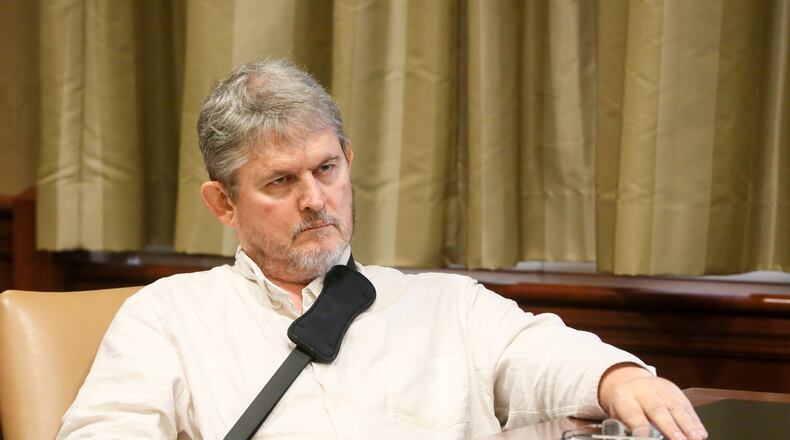Compton has been free on his own recognizance since his indictment, but he failed for show up for a pre-trial hearing in Butler County Common Pleas Court and Judge Charles Pater revoked the bond.
MORE: Man’s pacemaker led to arson charges
Compton’s trial was scheduled to begin March 19, but Pater vacated the date. Compton’s court-appointed attorney Glenn Rossi is no longer working for the county public defender’s office and his new attorney, Rusty Thomas, needs more time to prepare for trial, according to an agreement by the attorneys and the court.
Credit: DaytonDailyNews
The case is believed to be the first of its kind to use data from a beating heart as evidence. In July, Pater evidence from Compton’s pacemaker can be presented at trial.
Middletown detectives said Compton gave statements that were “inconsistent” with evidence collected at the scene.
Compton, who has an artificial heart implant that uses an external pump, told police he was asleep when the fire started. When he awoke and saw the fire, he told police he packed some belongings in a suitcase and bags, broke out the glass of his bedroom window with a cane, and threw the bags and suitcase outside before taking them to his car.
Police then obtained a search warrant for all of the electronic data stored in Compton’s cardiac pacing device, according to court records.
MORE: Neighbors heard loud explosion before house caught fire
The data taken from Compton’s pacemaker included his heart rate, pacer demand, and cardiac rhythms before, during and after the fire.
A cardiologist who reviewed that data determined “it is highly improbable Mr. Compton would have been able to collect, pack and remove the number of items from the house, exit his bedroom window and carry numerous large and heavy items to the front of his residence during the short period of time he has indicated due to his medical conditions,” according to court documents.
Rossi argued the pacemaker evidence should be thrown out because the search was an invasion of Compton’s constitutional rights and unreasonable seizure of his private information.
About the Author


